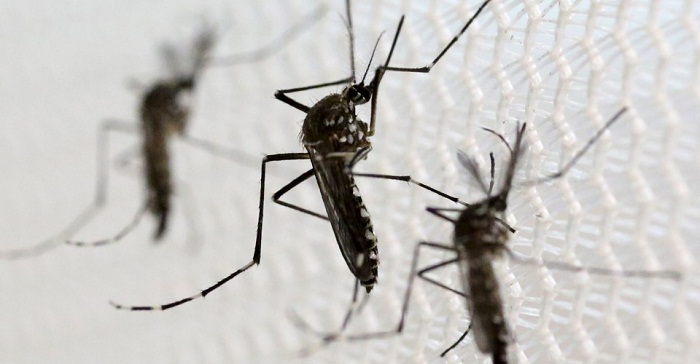The carer, from Utah, did not have any of these known risk factors.
US officials say they are monitoring the situation carefully and carrying out more tests.
They stress that the chance of spread from one person to another without sexual contact is still very unlikely or rare.
The Centres for Disease Control says the patient, who died in June, had travelled to an area where Zika-infected mosquitoes are present.
Lab tests showed he had uniquely high amounts of the virus - more than 100,000 times higher than seen in other samples from infected people - in his blood.
The CDC has sent out an emergency response team to investigate.
They will be interviewing and testing family members of the carer and any health care workers who may have had contact with the deceased man.
Gary Edwards, director of the Salt Lake County Health Department, said the infected individual was a family contact of the man who died.
"We know that the patient had contact with the deceased patient while the deceased patient was very ill," he said.
"The exact nature of that contact, we are still investigating."
The investigators also plan to trap and test local mosquitoes to check that they are not carrying and spreading the virus.
Tom Hudachko, from the Utah Department of Health, said state officials were not aware of any mosquitoes known to carry the Zika virus within Utah.
He said there had been a few Aedes aegypti mosquitoes - the kind that carry Zika - discovered in traps in the south-western parts of the state several years ago, but there had not been any since.
CDC expert Dr Erin Staples said: "The new case in Utah is a surprise, showing that we still have more to learn about Zika.
"Fortunately, the patient recovered quickly, and from what we have seen with more than 1,300 travel-associated cases of Zika in the continental United States and Hawaii, non-sexual spread from one person to another does not appear to be common."
More about:
















































